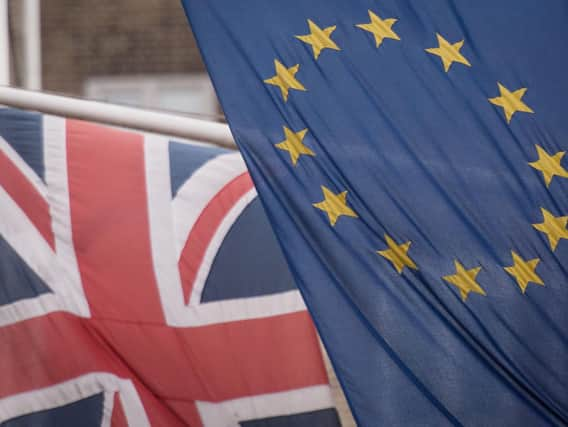Why we must protect the rights of vulnerable people after Brexit - Greg Wright


Immigration analysts have warned that children in care and modern slavery victims who are EU citizens could be in danger of falling through the cracks and losing their right to live in the UK.
Concerns have been raised that members of the Roma community and other vulnerable people could be at risk of becoming irregular migrants if they do not know they need to apply to the EU Settlement Scheme to secure their immigration status after freedom of movement ends.
Advertisement
Hide AdAdvertisement
Hide AdA report from the Migration Observatory at the University of Oxford must make us all stop and think.
EU citizens and their families are asked to apply to the Home Office’s EU Settlement Scheme (EUSS) by June next year in order to carry on living and working in the UK when the transition period with the European Union ends after Brexit.
According to provisional Home Office figures to the end of August, more than 3.9 million applications have been received.
Over half of those, at least 2 million, have already been granted settled status and some 1.5 million were granted pre-settled status, where they would need to reapply again after living in the country for five years to gain permanent residence.
Advertisement
Hide AdAdvertisement
Hide AdBut over 10,000 applications were refused, at least 31,000 were withdrawn or void and more than 38,000 were invalid; these are cases where the Home Office decides someone is not eligible to apply or has failed to provide sufficient proof of residence.
If a significant number of eligible people do not apply by the end of June next year they risk being classed as an irregular migrant – losing the right to live and work in the UK and potentially facing detention and deportation, the report said.
While most EU citizens living in the UK will find the scheme straightforward and easy to apply for, some people could well struggle to complete the application form.
Gaps in data provided by the Home Office on how the EUSS is progressing “make it impossible to know whether such citizens who are currently UK residents are not applying for status”, the report said.
Advertisement
Hide AdAdvertisement
Hide AdDr Marina Fernandez-Reino, co-author of the report, said: “Applying to the EUSS is easy and fast, and more than 3 million applications have been submitted, but our analysis suggests that there could be many who will not apply.
“This could be because they are not aware of the scheme, they have difficulties navigating the process or there is no evidence to prove their eligibility.”
Even if just 1% of the UK’s estimated EU citizen population failed to register for settled status, it would generate more than 30,000 new irregular migrants in the UK.
Dr Fernandez-Reino said: “The sheer scale of the process means that even if we were to see more than 99% compliance with the scheme – a level which is unusual in any sort of bureaucratic process – this could still lead to many thousands of people with immigration problems next year. Many of them may be society’s most vulnerable.”
Advertisement
Hide AdAdvertisement
Hide AdThe Home Office has stressed that it is working to ensure that all eligible children and families are supported with their applications to the EU Settlement Scheme.
Last year, the Home Office awarded £9 million of funding to 57 charities across the UK who have already helped hundreds of thousands of “hard to reach people to apply”.
In March 2020, the Home Office announced a further £8 million of funding to help vulnerable EU citizens.
The spokesman added: “We have been clear that where someone has reasonable grounds for missing the deadline they will be given a further opportunity to apply.”
Advertisement
Hide AdAdvertisement
Hide AdAlthough these measures are to be welcomed there can be no grounds for complacency. Applications will be more difficult for people who already face social exclusion of some kind or whose independence or autonomy is reduced, such as modern slavery victims.
We must all remain vigilant to ensure that vulnerable people do not lose rights most of us take for granted.
Support The Yorkshire Post and become a subscriber today. Your subscription will help us to continue to bring quality news to the people of Yorkshire. In return, you'll see fewer ads on site, get free access to our app and receive exclusive members-only offers. Click here to subscribe.
Comment Guidelines
National World encourages reader discussion on our stories. User feedback, insights and back-and-forth exchanges add a rich layer of context to reporting. Please review our Community Guidelines before commenting.